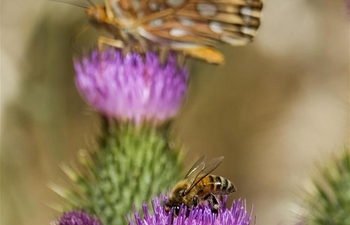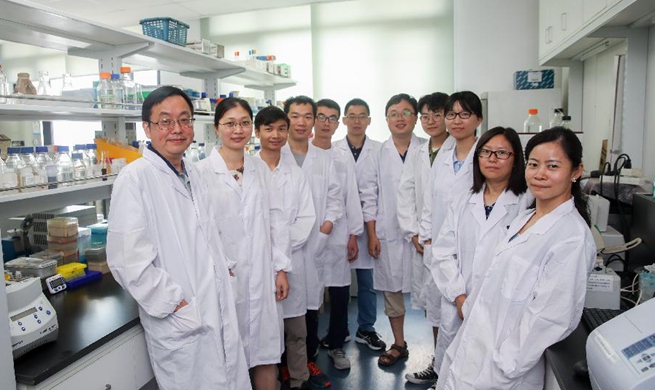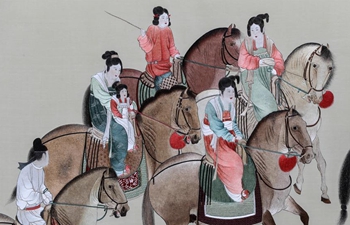GUIYANG, Aug. 3 (Xinhua) -- Chen Feng's childhood memories are steeped in tea. As a girl, she would pick tea leaves in the day and fry or dry them in the evening.
Chen, 31, is the daughter of tea farmers in Hetaoba village in the city of Zunyi in southwest China's Guizhou Province.
"When I was little, my parents had to exchange wheat for rice, and we could barely feed ourselves," she recalled.
Before the 1980s, villagers grew ginger, wheat and corn. Life was hard. He Dianlun, Party chief at that time, changed that situation by encouraging villagers to plant tea.
"At first, villagers didn't know what tea cultivation would bring, so few dared to grow tea. At that time, Party members took the lead," she said. "After seeing the real economic benefits, my parents decided to become tea farmers, too."
"Tea has brought us fortune. Not only are we able to feed ourselves, but now every family has a car," she said.
As the child of tea farmers, Chen has a strong attachment to tea. She and her younger brother both work for tea companies today. Her family earns an annual income of 40,000 to 50,000 yuan (about 5,800 to 7,300 U.S. dollars) by growing tea and working for tea companies.
"Opportunities brought by the tea industry in my hometown are attractive to young people. That's why I came back after working in Beijing for two to three years in 2008," she said.
The village now has about 850 tea-farming families and 62 tea companies, said Chen Tingming, the village's Party chief. Last year, tea trees in the village covered an area of 800 hectares and created an economic output of 224 million yuan, with a net income of 16,400 yuan per farmer.
The village also started to develop tourism last year. Tourists who come to the village are able to pick tea leaves and fry or make tea themselves. About 600,000 to 700,000 tourists visited the village in 2017.
"The village has 1,200 hectares of land, and apart from tea trees, 200 hectares are forest," he said. "We make environmental protection a priority."
In recent years, the local government has been giving out organic fertilizers to tea farmers for free in an effort to protect the environment.
"We want to raise farmers' awareness of environmental protection, and help them understand that tea cultivation and environmental protection are important to society," he said.
















